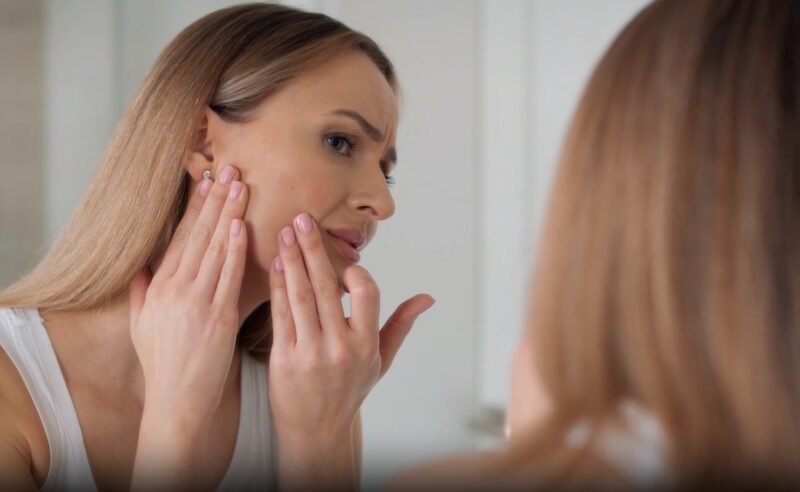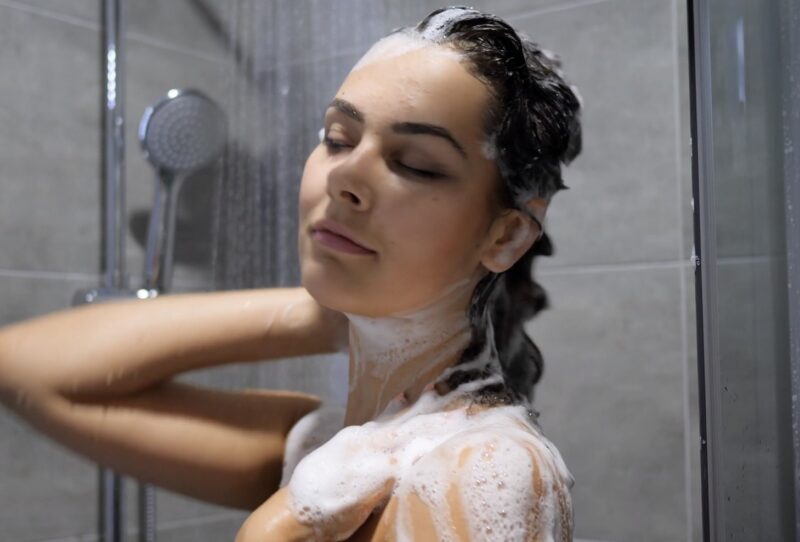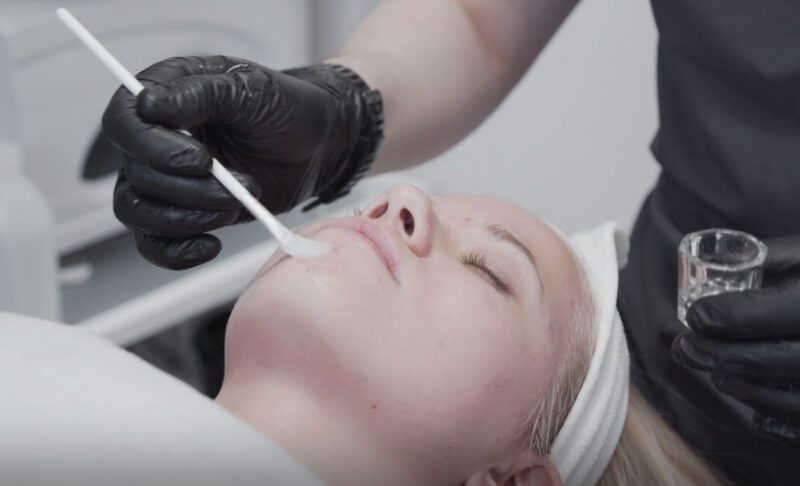Pregnancy is a time of significant change for your body, and for many women, this includes changes in their skin. Acne during pregnancy is a common experience, but it requires special attention and care due to the sensitive nature of pregnancy. This blog post aims to guide you through understanding and managing body acne while pregnant, ensuring both your safety and your baby’s.
What Happens to Your Skin During Pregnancy?
During pregnancy, hormonal fluctuations are common, which can lead to increased oil production in your skin. This excess oil can clog pores, leading to acne. It’s essential to understand that these changes are normal and a large number of pregnant women experience them.
Hormonal Changes and Acne
The surge in hormones, particularly progesterone, increases sebum production in your skin. This excess oil can trap bacteria and dead skin cells in pores, leading to acne.
Skin Sensitivity During Pregnancy
Your skin may become more sensitive during pregnancy. This means that products or practices that did not irritate your skin before might now cause reactions.
Does Pregnancy Acne Go Away After Birth?

Many women find that their acne improves after giving birth. However, the timeline can vary, and in some cases, hormonal fluctuations after birth can continue to affect your skin.
Hormonal Fluctuations Postpartum
After delivery, your hormones will gradually return to their pre-pregnancy levels. This shift can help clear up acne for some, but it might take time.
Managing Expectations
While it’s common for pregnancy acne to improve postpartum, it’s important to manage expectations and understand that it may not disappear immediately.
Treating Acne Safely

Adapting your lifestyle and skincare routine is crucial for managing pregnancy acne. Safe and effective practices can help you maintain clear skin.
Gentle Cleansing and Skincare
Using a mild, soap-free cleanser can help prevent acne without irritating your skin. It’s also essential to moisturize with an oil-free product to maintain skin hydration.
Diet and Hydration
A healthy diet rich in vitamin A and staying hydrated can significantly impact your skin’s health. Opt for whole grains, fruits, vegetables, and plenty of water.
Safe Skincare Products

Choosing the right skincare products is essential for both your skin’s health and your baby’s safety. Look for products labeled as non-comedogenic and avoid harmful ingredients.
Oil-Free and Non-Comedogenic Products
Products that do not clog pores and are oil-free are ideal for managing acne during pregnancy.
Ingredients to Avoid
Avoid retinoids, certain antibiotics like doxycycline, and high doses of salicylic acid. Consult with your healthcare provider for safe alternatives.
Managing External Factors

Your environment plays a role in skin health. Regularly cleaning items that come into contact with your skin can prevent acne.
Cleanliness of Personal Items
Regularly wash pillowcases, towels, and hats. Also, clean your phone screen to reduce bacteria transfer.
Hair Care and Acne
If you have oily hair, regular washing can prevent oil transfer to your skin, which can exacerbate acne.
Stress Management and Sleep

Stress and lack of sleep can worsen acne. Finding ways to relax and ensuring adequate sleep are important steps in managing pregnancy acne.
Stress Reduction Techniques
Practices like meditation, gentle exercise, and ensuring downtime can help manage stress levels.
Importance of Quality Sleep
Adequate rest is crucial for overall health and can positively impact your skin.
When to Seek Professional Help

If your acne is severe or causing distress, it’s important to consult a dermatologist. They can provide safe and effective treatment options tailored to your pregnancy.
Professional Treatment Options
A dermatologist may recommend topical treatments that are safe during pregnancy, such as erythromycin.
Limits
Be aware of the limitations and risks of certain acne treatments during pregnancy. Always discuss potential treatments with your healthcare provider.
Dietary Influences on Skin Health

Your diet plays a significant role in skin health. Certain foods can exacerbate acne, while others can help maintain clear skin.
Incorporating foods rich in vitamin A and antioxidants and avoiding high sugar and refined carbs can positively affect skin health.
Hydration and Skin Clarity
Staying well-hydrated is crucial for overall health and can significantly benefit your skin, helping to keep it clear and hydrated.
Importance of Water Intake
Adequate water intake helps in detoxifying the body and maintaining the health of your skin, reducing the likelihood of acne flare-ups.
Frequently Asked Questions (FAQs)
Can I use natural or home remedies for pregnancy acne?
Natural remedies like aloe vera or honey can be gentle options in many cases, such as skin discoloration. However, always check with your doctor before trying new treatments, as some natural ingredients might not be safe during pregnancy.
Is it common to experience acne in areas other than the face during pregnancy?
Yes, body acne can occur on the back, chest, and even shoulders during pregnancy due to hormonal changes.
Can changing my pillowcase more frequently help with pregnancy acne?
Yes, regularly changing your pillowcase can reduce the buildup of oils and skin cells that might contribute to acne.
Are there any specific fabrics to avoid for clothing and bedding to prevent pregnancy acne?
It’s best to use breathable fabrics like cotton, which reduce sweat and oil buildup on the skin.
Can prenatal vitamins impact acne during pregnancy?
Prenatal vitamins are essential for your health during pregnancy, but they can sometimes influence skin changes. Discuss with your doctor if you notice any skin reactions.
How long after pregnancy does it usually take for acne to clear up?
This varies, but many women see improvement a few months postpartum as hormones begin to stabilize.
Can breastfeeding affect postpartum acne?
Breastfeeding can influence hormonal levels, which might impact skin health. However, this varies greatly among individuals.
Conclusion
Managing body acne during pregnancy requires a gentle, safe approach. Understanding the changes happening in your body, adapting your skincare routine, maintaining a healthy lifestyle, and seeking professional advice when necessary are key steps in managing pregnancy acne effectively and safely.
Remember, each pregnancy is unique, so what works for one person may not work for another. Always consult with your healthcare provider before starting any new treatment or making significant lifestyle changes. Your journey through pregnancy can still be a time of glowing health and happiness, even with the challenge of managing acne.

